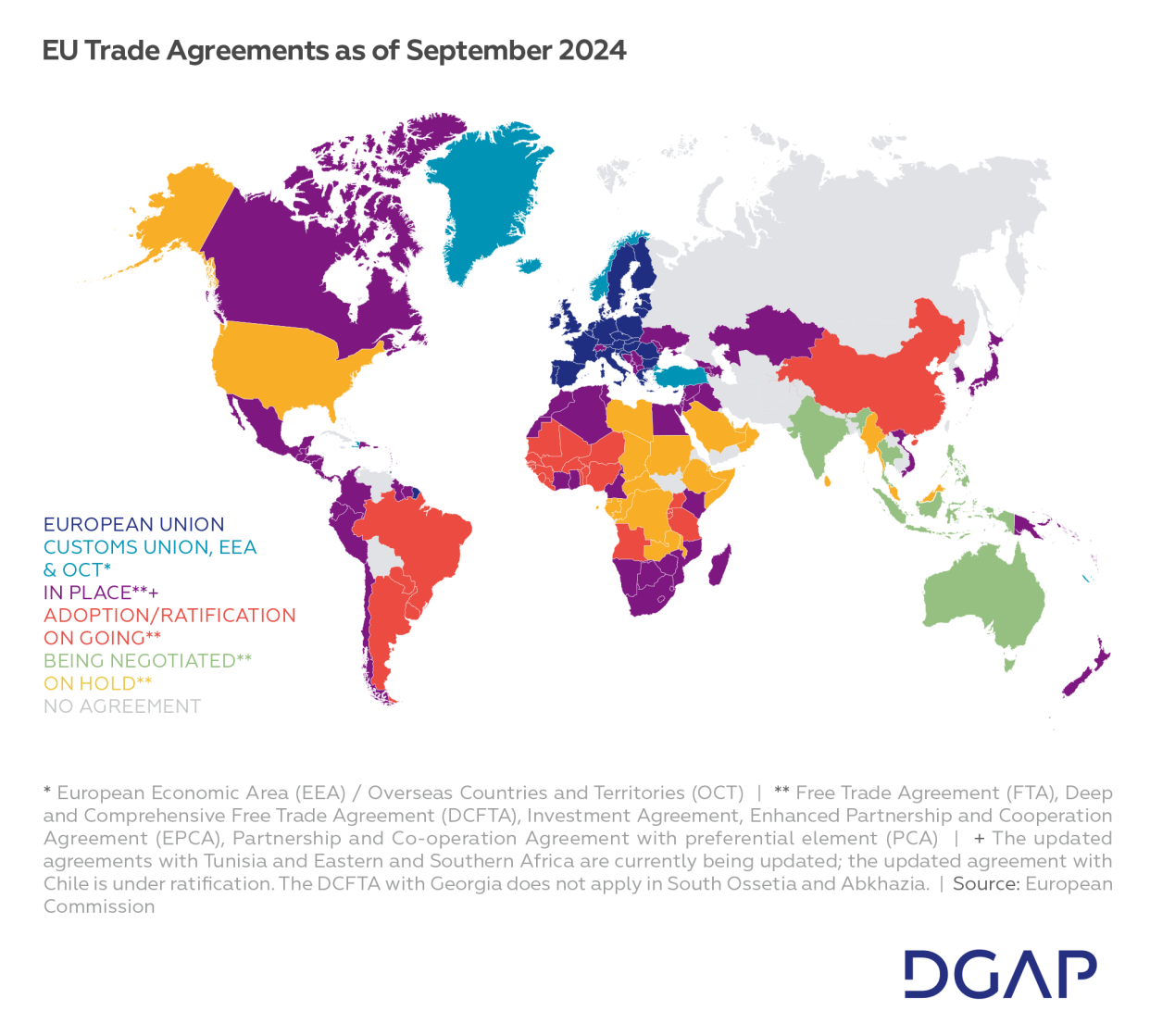| Market openness is key for the EU so new trade defense instruments should only be applied strategically in key sectors. To preserve global partnerships, unilateral sustainability measures should be connected to all aspects of sustainability and linked to the Global Gateway Initiative. |
| FTAs are still the most important bilateral approach for market opening and strategic partnerships with third countries. The EU needs to finish outstanding FTAs – connecting them to trade and investment issues – and use smaller and more pragmatic deals. |
| The United States will remain an important economic and security partner for the EU. Consequently, the EU should try to keep a streamlined TTC in place and consider a sustainability club. |
| The EU must help restore trust in and at the WTO through data-based deliberations and consensus rules. To move forward, plurilateral agreements that are connected to the UN’s SDGs are needed, especially in the areas of sustainability and global health. |
Below you will find the executive summary of this text. To read it in its entirety, please download the PDF version of DGAP Analysis No. 9.
We are living in a difficult geopolitical environment that is characterized by increasing geoeconomic rivalry, fragmentation, and distrust among countries. This development needs to be avoided or, if this is not possible, diminished. The EU has realized that it needs to reinforce and overhaul its own trade toolbox to adapt to a newly geoeconomic trading environment. But a stronger toolbox is not enough. Of the three components of EU trade policy – promote, protect, and partner – the partner aspect needs particular attention.
The European Commission that was just appointed needs to explore new ways to make progress on partnerships. Yet the official title of the new Trade Commissioner, Maroš Šefčovič, which, includes economic security for the first time, points his portfolio elsewhere. This direction needs to be reconsidered. On the EU level, this relates to the (narrowly defined) strategic – instead of across the board – use of trade defense measures, as well as closer coordination and outreach on sustainability regulations. On a bilateral level, the EU needs to put a lot more focus on free trade deals and partnerships than it has done before. It needs to deal with growing skepticism regarding free trade agreements (FTAs) and look for new pathways to address access to untapped markets, unfair competition, and overcapacities. This includes mini deals and, potentially, plurilateral clubs.
On a multilateral level, the WTO needs to be kept alive (despite a waning enthusiasm), trying new ways to reestablish trust among its 166 members. WTO member states also need to reconsider their trade priorities to make negotiations possible. For example, the EU must grasp that the geopolitical and geoeconomic risks it faces in the long term are far more significant than the short-term successes it could achieve by protecting agricultural markets. As this is a long-term plan, the EU – and its partners – need to look for plurilateral ways forward, especially on topics related to the United Nations’ SDGs, including those on sustainability or health issues.
Trade is the most important pillar of the European Union’s dealings with third countries. In this area, the EU is a global player. To maintain this role, the new Commission will need to apply a significant amount of innovative thinking to stay relevant and continue shaping the global trade agenda. Its focus must return to market openness and partnerships with reliable countries – not only in the transatlantic and G7-plus fields but also with the countries of the Global South.




